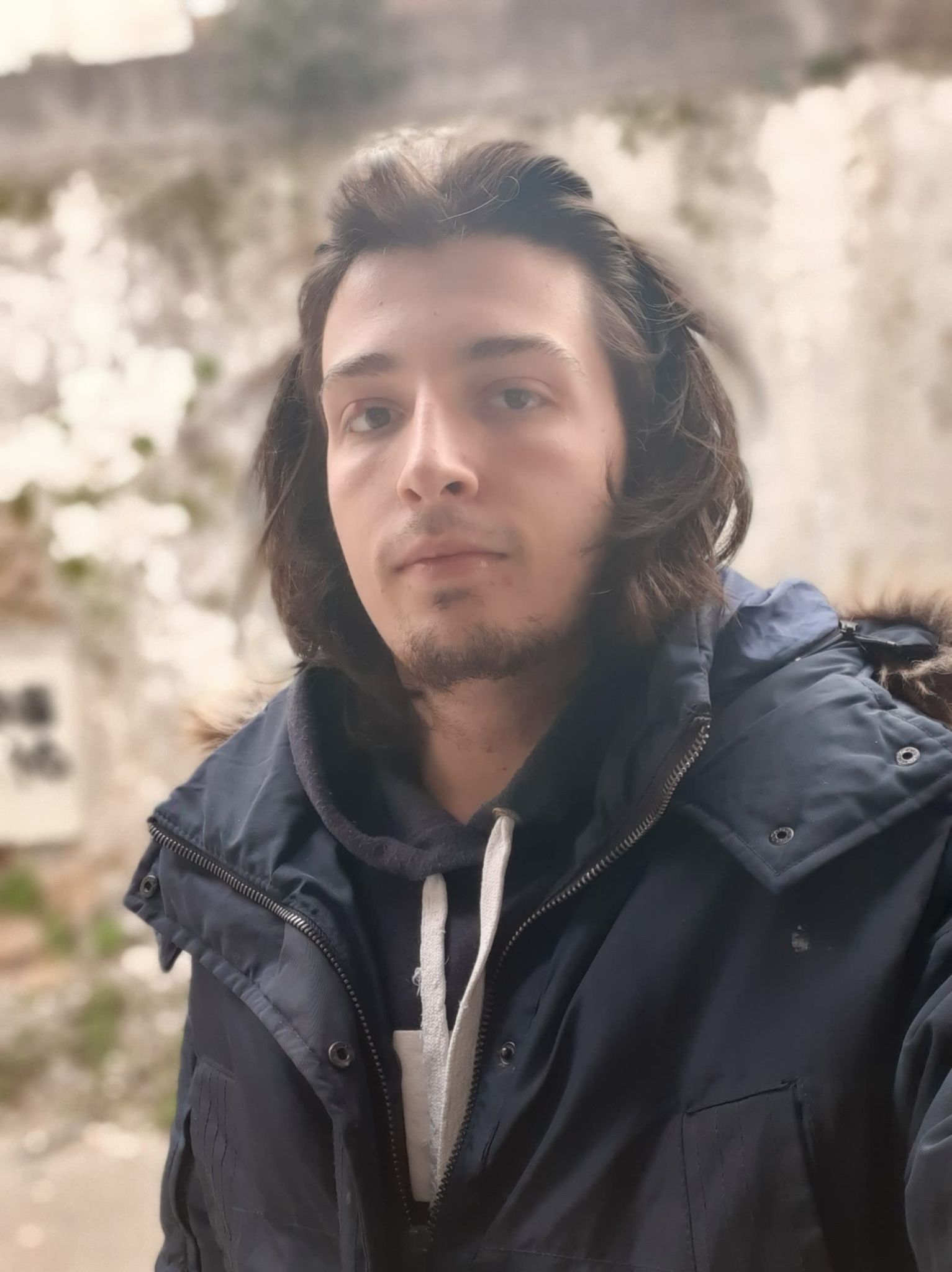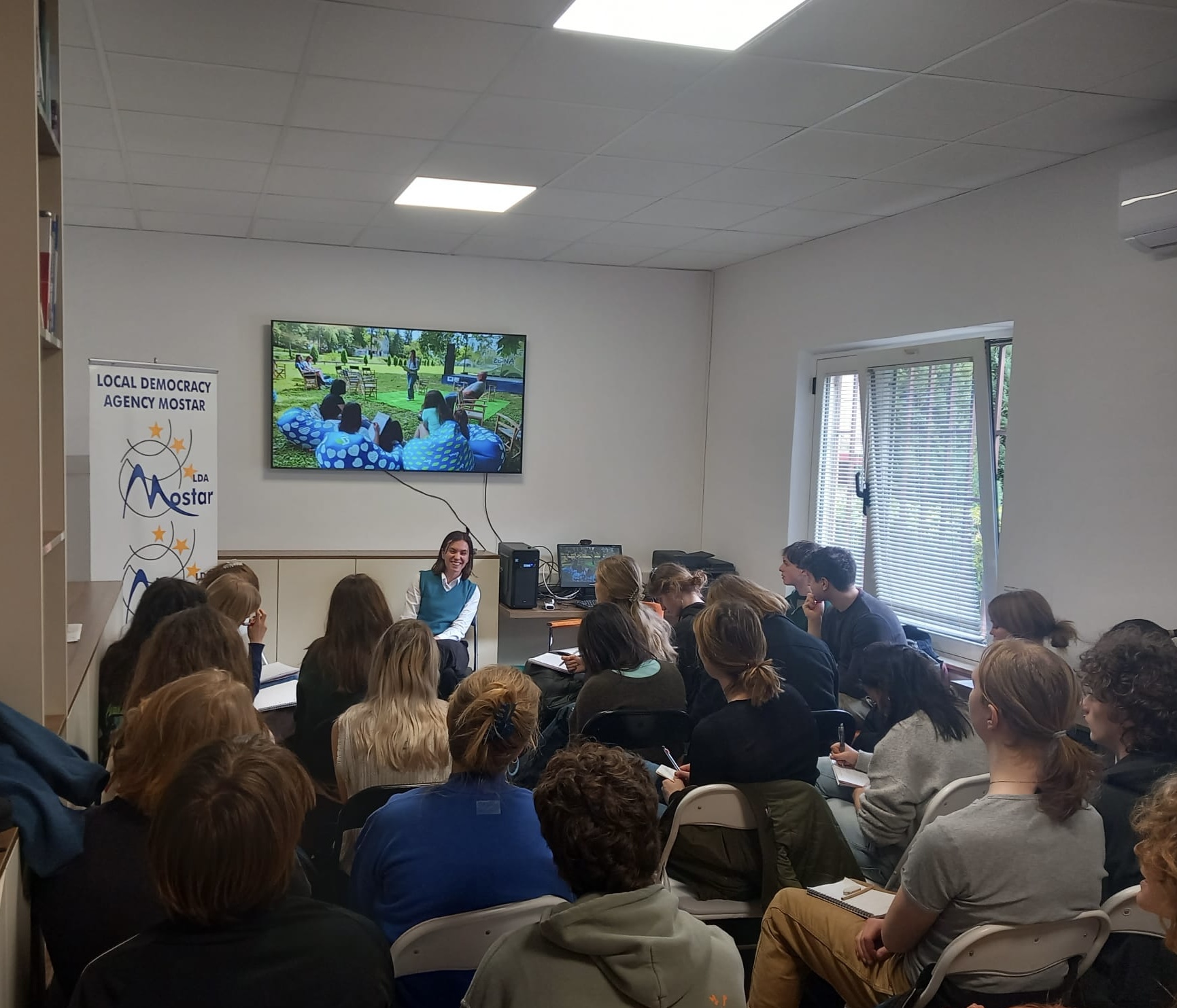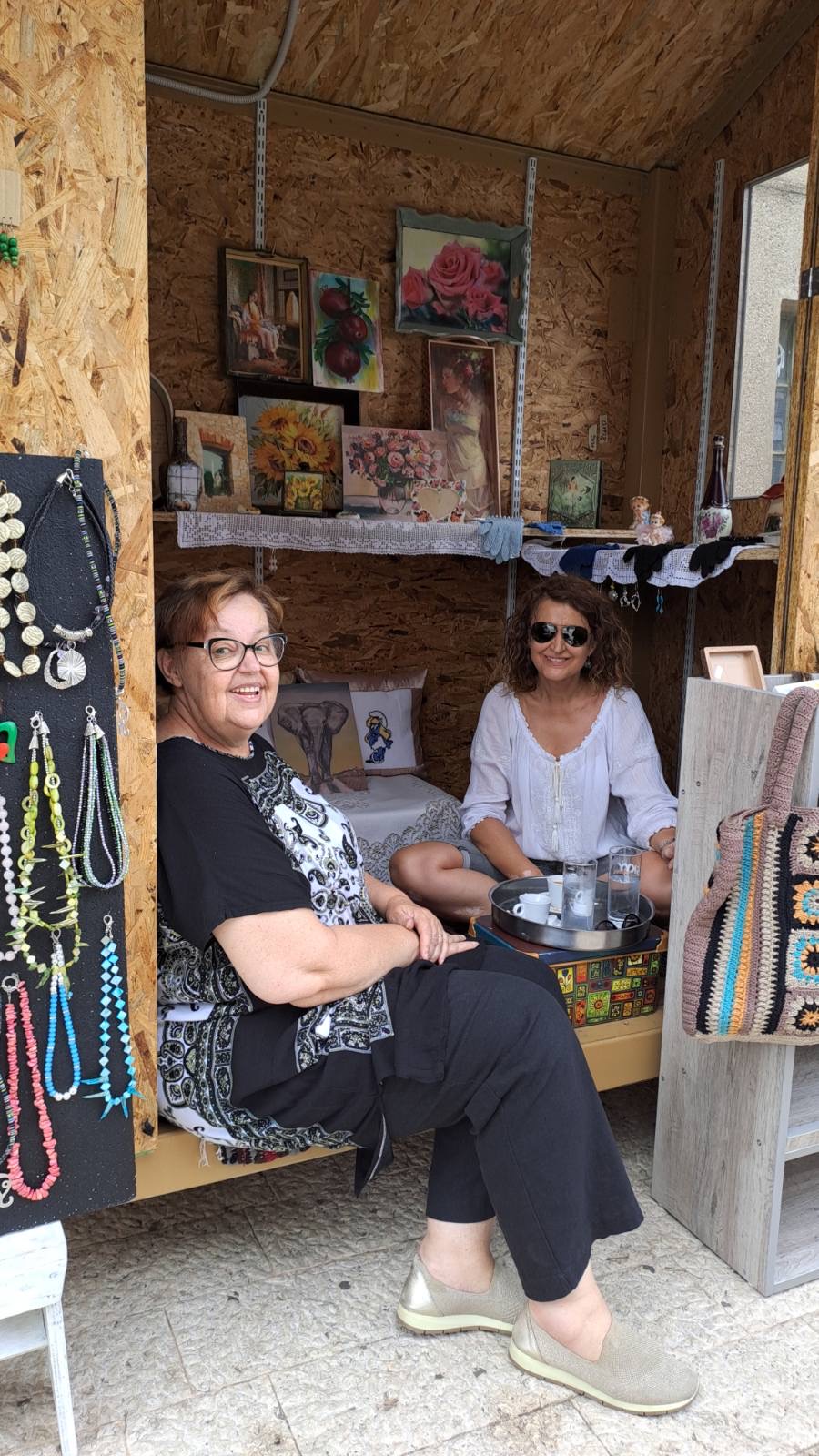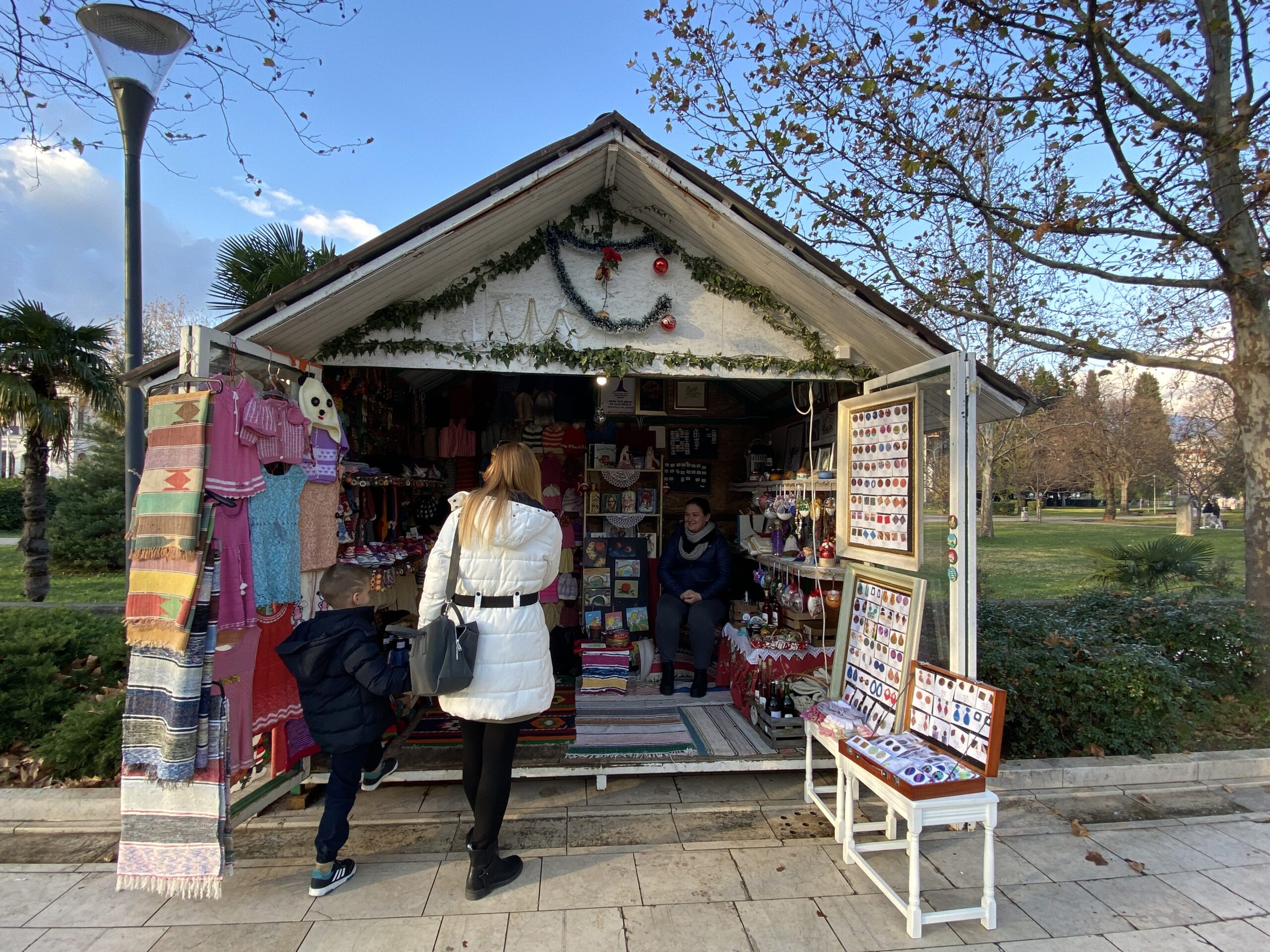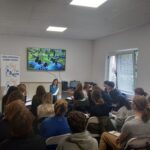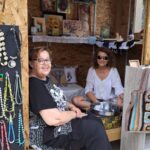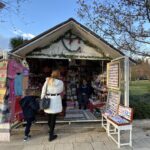The geopolitical scenery of the 21st century, noted by many events primarily led by conflicts of interest and proxy wars between the leading economic powers, is tense. Financial crises, pandemics and social divisions across ideological, biological and class differences are additional hardships our globe, in a series of constant schisms, has to face – and has been facing on a greater level ever since the Y2K. Especially after the declaration of the so-called “War on Terror” have we been noting the consequences of the destabilization of the Middle East – from the Atlantic to the Indus River – in the sense of mass surveillance, polarization and rows of migrants on the gates of Europe, the Americas and the self-declared “liberal part of the world”.
Bosnia as a quick stop on the trip.
The Balkan Peninsula had, again, become a topic of media reports and investigations. It is of extreme importance to all, as a passage and brief stop through which many seek to pass in order to make a living, either being from warzones in the Arabian Peninsula or the Levant, or from various dictatorships or countries heavily hit by political corruption. Reports are commonly aired and published on websites and news, thematically based on sunken ships in the Mediterranean, physical confrontations with uniformed police officers and the border patrol, and – once they finally cross the border – robberies, murders, rapes and arson.
In the midst of the already-unstable political states of the former member-states of Yugoslavia, man’s harsh path towards a sustainable income had only become increasingly even more dire towards him, with socially-implemented racism, xenophobia and violence originating from the said post-Yugoslav political instability. The country of Bosnia and Herzegovina found itself as a part-time station for people seeking better life opportunities. Many have, on their way to the richer parts of the continent, been pushed back or even beaten brutally on the border with Croatia. They have temporarily taken a break in our country, stuck on the rocky road to a better life. A lot are unable to move on into the European Union, and are accepting what they thought was a brief stop as a permanent location. We see them on our TV screens, washed in misery, wearing roughly-sewn winter clothes and gathered round a thinning campfire probably to be put down by the cold winter winds.
The exact number of migrants and refugees in this country is unknown. Deutsche Welle reports around 65 thousand people entering Bosnia and Herzegovina from January 2018 until October 2020, all of whom are the aforementioned migrants. Unfortunately, we do not possess much knowledge on all deaths and departures of the named demographic during the period of the last three years. All information regarding the populace in mind, its’ demographic structure and other things of importance are obscure, both in the highlighted period of time, as well as the eras before and after.
Websites and newscasters frequently report on homicides and thefts of the “natives” by the “immigrants” and vice versa. A recent topic of extremely-heated political debates in many European and American legislative governments is the supposed “cultural conflict” in which the “white man” is facing “the brown man”. A commonly-asked question is that of them “integrating” into their host societies, apart from the majority population’s treatment of the minority. In the stew of tensions stirred by the incompetence of our local and state government officials, solutions surface; they will, however, probably never be implemented, considering the undisputed and hard truth we had realized over time.
The safe haven of Mostar.
The southern parts of Bosnia and Herzegovina are considered the migrants’ “Plan-B” route into the EU. The Gabela and Doljani border crossings, among others in Herzegovina, are a much more pleasant alternative to the Krajina and Central Bosnia regions, from where many are moving due to conflicts with locals. The Salakovac Refugee Camp has, in the last few years, been home to dozens of families and hundreds of lone travelers.
Mostar can be considered a safe haven for all Moroccans, Algerians, Tunisians, Syrians, Iranians, Kurds, Pakistanis and other nationalities present in it. They are majority Muslim with scarce populations of Hindus, Christians and even atheists. Many speak Arabic as a lingua franca, but it is not everyone’s first language. They are mostly introverted, rarely opening themselves to a stranger. What separates them from their fellow travelers in other cities and towns, however, are the wide smiles on their faces. All of them claim that their lives are better here than anywhere else in this region. When expressing gratitude to people, they keep their hands on their heart in an indication of honesty, wishing them the very best. Whether or not their day be good or bad, at the end of it, they will have turned it into a positive experience with the locals.
Many are employed as street vendors. They aid their wealthy bosses and landlords in reselling paper tissues, calligraphic art pieces, bracelets and necklaces. The buyer will give a price of 0.50 BAM for a package of Violeta paper tissues, often leaving tips. A few are beggars, whether or not it be for money or a cigarette. Urdu-speakers, Uzbeks, Berbers, Farsi-speakers and Arabs communicate with Southern Slavs in many languages. Most are fluent in English. They have also picked up on a few phrases in Bosnian/Serbian/Croatian, with some also developing a more complex vocabulary.
They feel like a part of the native populace, safer here than in places like Bihać, Sarajevo or Velika Kladuša, where local governments had pushed them, contributing to pre-existing tensions. Some occasionally engage in illegal acts over here as well, but are relatively in better relations with the domestic populace than anywhere else. From what is certain, the ties between us and them make us all feel like brethren, with heart-wrenching stories and warm imagery laying in abundance.
Tales of forsaken men.
Over the last twelve months, I have personally met many people wandering through streets, hoods. crossroads and even slum buildings. It is common to see a person wearing a warm jacket, a snowcap and a bag full of things to resell; they also wear bags, either on the back or the stomach, carrying what they deem essential – money, keys, cigarettes et cetera. Even though they seem lonely and solitary, a nice word pointed at them will always lead them into showing their innocence and altruism.
I befriended two of them last year. Younes Lamnaouar is from Morocco, in his late twenties. He currently resides in the Braće Fejića Street. He sleeps in a room with a fireplace. Before the COVID-19 pandemic he used to sell souvenirs. “Before the virus you could only buy and sell”, he states. He says life is currently going great for him, and that he wishes to go to Italy.
He shares his residence with his friend Nurudin (“Nurudin” is a pseudonym as given by the author in accordance to the interviewee’s wishes). Also from Morocco, he was previously employed as a music video producer in Casablanca. Due to financial hardships, he flew to Egypt, going on a path from there, through Turkey and currently being located in Bosnia and Herzegovina. He is not better off here either; his friends and family send him money from time to time. During his stay, he started learning our language. He describes his life as “great”, claiming that he “doesn’t feel like a migrant in relation to where he’s been before Mostar”. He, “Inshallah” (“God willing”), is planning on continuing his trip to France.
I often greet migrants when passing by. I do not recall the names of some people, nor do I ask them to give me their names; however, what struck me is the fact that they constantly refer to me as a brother. At times I would give them a lighter to light a cigarette, some change left or even ask them how they are doing. They constantly smile, firmly grasping and shaking one’s hand and at times even hugging a man, even when he tells them he does not have any money with him.
They possess a worker mindset. The ones I had spoken to said that they wished to find any job regardless of whether or not it be something of prior experience or totally new to them. If not in the European Union soon, they think they could, “with God’s help”, find a way here. They are optimistic, using their constant positivity to connect to others around. When solitary, their piety and gratitude are expressed through their recitals of the Quran.
I spoke to an Uzbek about how many languages each of us knows. At that moment I realized their eloquence and ability to connect to others. A polyglot’s power lies in communication, leaving a good impression on the listener. It is a skill worth having in the modern era, with all the connections made on our paths helping us out.
In a hilarious incident involving a migrant selling paper tissues and an old lady only having a 20 BAM bill and not willing to give him any change besides what she bought from him, I stepped up as a mediator and interpreter. I was also witness to a touching moment when a girl wanted to grab something from Nurudin, as well as also noting the laughter that ensued from both sides after her parents tried explaining to her that she is not allowed to touch other people’s things without their permission.
“What God wills”.
My interviewees, the mirrors into my soul, are hard-working passengers traversing the road from fear to peace. By wearing crudely-sewn clothes and footwear, they express a peaceful state of mind, preparing themselves to relive both the best and the worst all over again, merely to reach a final destination and to feed themselves and their families. “Inshallah”, they say. “What God wills”. Many are uncertain of their next steps, with no one to complain to nor talk to when hardships strike. Nevertheless, they persist on going. Despite the obstacles, they will keep fighting for themselves and their children.
In an era of extreme chauvinistic fascism and hatred wearing a refined veil of “national awareness”, the ones deemed the “attacking force” by racists and neofascists get hurt the most. They are constantly under attack by local populaces, fed up with the irresponsibility and incompetence of their own officials. This brutal and destructive food chain ends on profiteers and criminals of all classes, trampling over all of us wishing for a better life.
Every single thing we note down when talking to a man of a seemingly “lower” position than us gives us an insight into what we are. Every migrant we talk to is our mirror and window into ourselves. He tells us both what we have in common and out differences. He teaches us important and long-lasting life lessons on persistence, positivity and serenity. Younes told me this when I asked him about what he thinks his life will be later on: “I don’t know. Only God knows my path. As far as I’m concerned, I’ll go my own way, working to overcome any obstacle threatening me.”.
Written by: ADNAN BRATIĆ

